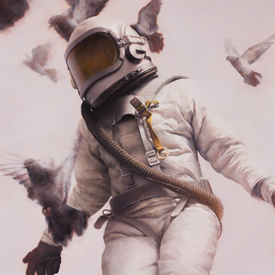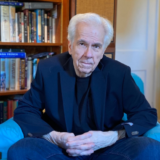 As it comes to the end of Year 2013 and to the rather anticlimactic end to Christmas, all minds are now focused on the prospect of new starts, recently acquired habits to erase and new patterns to encourage. For those who write or are planning to start writing, this is no exception. Even if you’re the sort who cracks out a story after periods of prolonged contemplation, there is always a process at work and not one that can always be tapped. Therefore, I thought I’d end the year with some tips that the world and his wife peddle; but I hope I can impart some novel advice somewhere. These tips are for any form of writing (within reason).
As it comes to the end of Year 2013 and to the rather anticlimactic end to Christmas, all minds are now focused on the prospect of new starts, recently acquired habits to erase and new patterns to encourage. For those who write or are planning to start writing, this is no exception. Even if you’re the sort who cracks out a story after periods of prolonged contemplation, there is always a process at work and not one that can always be tapped. Therefore, I thought I’d end the year with some tips that the world and his wife peddle; but I hope I can impart some novel advice somewhere. These tips are for any form of writing (within reason).
1. The Elevator Pitch – prepare it!
This is helpful for three main reasons – one, it helps you realise what your story really is about. This is where I should heed my own advice. I try to pack many concepts in and as a result you can lose track of where your characters are and how they’re developing. This can run the risk of sounding overly didactic or just too dense, which does compromise on character and plot – which does sound like a common trap of written SF. The elevator pitch can help you bring clarity to your own mind what’s the most important point of what you’re doing, as well as solve that problem of how to explain your work to a casual enquirer (someone who knows you will know better than to ask that question!)
The Elevator Pitch also helps in moments like that to keep things spoiler free. You don’t want to give away too much – or to give certain expectations to what will inevitably be your future readers.
2. Keep everything
And I mean everything. Not in the published work (or produced), but somewhere on hand – whether it’s a scribble on a piece of paper, a word document with a few notes on a character or idea or period or whatever. You never know when you need to come back to it, even if it didn’t seem a fit for your piece at the time (or could well act as a future endeavour). Believe me, nothing sucks more than writing out something you actually did months ago but then deleted
3. I’m sorry, it has to be said… write everyday
A huge cliché, but it’s endured for that reason, because it’s so important – and it goes nicely with the fact that you should keep everything. Writing exercises the brain, which is a muscle and should be exercised, blah blah, we know all this, *but* it also gives you an excuse to look back and think that yes, I did something today. It will be a piece that will help your grand opus at the end – like ticking off a check list which includes the bullet point that reads think of a title. We all need to humour ourselves now and then, to keep ourselves sane. This leads on to the sub-tip: rewarding yourself for milestones reached is not a bad thing.
4. Writing is an individual thing
I know it erases the need for tips, but that’s why I’ve kept it as general as possible. Some people write in the mornings, some people in the evenings, as well as planning techniques and all that jazz. What’s great is to know your routine and to work around it. If you’re writing odd bits and ends that don’t go anywhere (something I know too well), maybe more planning is needed. You’ll know when things run a little smoother (although there will be hiccups – those are inevitable).
5. Keep your eyes on the road
That is, focus on what you’re going to write next. It’s all too tempting to go back to the beginning and rework it, to the point of writing the perfect first sentence with a fear to continue, to get past that jumping off point. You’re going to get many times where you’ll want to stop and go back and strip off the scaffolding and start again – resist that temptation! Make a note of it, so you’ll know once you get to the end, what you’ll want to change. First drafts are first drafts for a reason. Most likely your mind will twist and turn more often than not.
6. Keep true to you
This is a bonus tip, because it’s worth repeating – don’t pander to the audience so much that your voice, your message and by extension, character and plot get drowned in the process. People want your unique viewpoint and story – just give them a few hooks so they can hold on in their own way whilst you tell it.
I hope you have a great year filled with happiness, health, and wonderful plans for the future! My next blog post will let you know of Science Fiction Theatre happenings in 2014 – so I hope you’ll stay tuned!










